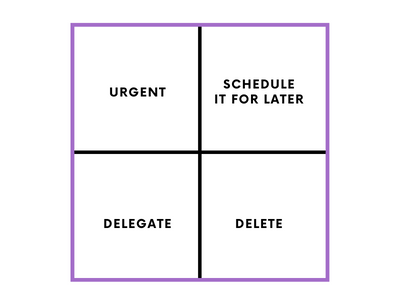Navigating the business world often demands a level of foresight and strategy that can seem daunting to the most spontaneous of entrepreneurs. The notion of meticulous planning can be enough to make the planning-averse shudder.
I want to assure you that planning is not mandatory. If you have a strong dislike for planning, I give you permission to skip it. However, if you need to plan but find it stressful, I have some tips that may help make the process less painful.
The reality remains that a basic blueprint is helpful for most business success. In this post, I explore how even the most resistant can embrace a level of planning that fits within their comfort zone.
This guide will explore planning aversion’s psychology, introduce minimalist approaches, and showcase tools to streamline the task. Whether a start-up or a business owner dislikes detailed itineraries, it will help balance planning and spontaneity.
Why do some hate to plan?
Planning can be daunting, especially if you don’t enjoy it. It can use a lot of mental energy and make you feel drained. This is known as ego depletion in psychology, making planning and decision-making even more challenging.
Planning also requires restraint and self-regulation, which can be challenging to maintain, especially when we’re demotivated, neurodivergent, or need a break. Sometimes, we only want to relax and avoid work, which is fine and not a negative character trait. We need rest!

Another reason people don’t like planning is because they think it doesn’t work for them.
If you’re anything like me, you may find this hard to believe, but most people underestimate how long it will take them to complete a task. Most people are optimistic and think they will perform better than they will. This happens in groups, too. Let’s go back to 1871.
In 1871, British Columbia became part of Canada under the condition that a railway connecting it to Eastern Canada should be built by 1881. However, the railway was not completed until 1885, and the project exceeded budget by 22.5 million dollars. They also underestimated the number of workers they would need by 15,000.
If you struggle with planning, it can be a frustrating and overwhelming experience. However, there are some ways you can streamline your business planning and make it more manageable. Whether you are a non-neurotypical, prefer to rely on your intuition instead of planning, or simply find planning tedious and difficult, here are some tips to help you plan and stay on track.
Planning tips for those who hate planning
Flexible Scheduling: Create a more flexible schedule instead of sticking to a strict timetable. You might find it more productive to group similar tasks and work on them in blocks. For example, you could dedicate specific days or parts of the day to creative work, administrative tasks, or strategic planning.
Plan tasks on specific days based on your energy levels. For instance, schedule challenging tasks on days when you have more energy and less demanding tasks on days when you feel less energetic. Doing so can help you maximize your productivity.

Implementation Intentions: Despite the saying, “The road to hell is paved with good intentions,” many find this a good self-regulatory strategy. Implementing intentions is an “if-then plan” that can lead to better goal attainment and help with habit and behavior modification.
A [goal] does not prepare people sufficiently for self‐regulatory problems in initiating, maintaining, disengaging from, or overextending oneself in goal striving. On the other hand, forming an implementation intention spells out the when, where, and how of goal striving in advance. (source)
Peter M. Gollwitzer & , Paschal Sheeran
Here are examples of how you may use implementation intention in your business:
Goal: Increase online customer engagement to drive more sales and improve customer loyalty.
Challenge: You struggle to consistently engage with customers on social media and the company website.
If-Then Plan:
- If it is the start of the workday (9:00 AM), I will spend the first 30 minutes responding to customer inquiries and comments on social media and our business website.
- If I post a new product or update on social media, I will follow up with a question to encourage customer interaction and feedback.
By setting specific conditions (the “if”) and actions to take when those conditions are met (the “then”), you create a clear and actionable plan that is more likely to be executed, leading to a higher chance of achieving the goal of increased customer engagement.
Prioritize Tasks: Knowing what needs to be done first is crucial. Try using a priority matrix (pictured below) or the Eisenhower Box to classify tasks into four categories: urgent and important, important but not urgent, urgent but not necessary, and not urgent and not important. This will help you focus on what truly matters.

Task Lists: Instead of a rigid schedule, use a task list you can work through at your own pace. This will give you the structure of knowing what needs to be done without the pressure of specific timeframes.
Creating task lists to organize my daily activities and maximize my productivity is beneficial. This helps me stay on top of my responsibilities and gives me a sense of satisfaction and accomplishment as I check each item off the list. Creating task lists is an effective way to manage what I must do without focusing on time.
Tip: If something has to be done by a specific date, I either don’t include it on the list or put the due date in parentheses. I created a book of task lists! It’s available on Amazon now.
Set Goals: Having a plan that outlines your goals and objectives daily, weekly, and monthly can help you stay on track and achieve your desired outcomes. This plan should be flexible enough to adjust to unforeseen circumstances while being responsive to your progress and milestones. By creating a roadmap, you can gain a sense of direction and purpose, which can help you stay motivated and focused on achieving your goals.
In her book Your Brain is Not Broken, Dr. Tamara Rosier suggests that neurodivergent individuals ask themselves the following questions when considering a task: “How will I begin? (Be very specific.) When will I do this? Where will I do this activity? What might be emotionally distracting to me while I work? How will I manage that? How will I guard myself against the malicious motivators?”
Different ways to elevate your business
Leverage Your Strengths: When it’s time to plan, use your strengths. If you are innovative and visionary, set aside time for brainstorming and strategic thinking, and don’t shy away from challenging projects that require a creative touch.
Are you good at big-picture thinking? Use this ability to align the business task with the overall company strategy. If you are good at anticipating challenges, plan contingency measures or adjust strategies in advance to mitigate risks.
Rest and Recharge: In today’s fast-paced and demanding world, it is easy to get caught up in the never-ending cycle of work and forget to take a moment to breathe. However, regular daily breaks are crucial for maintaining overall health and well-being.
Taking a few moments to rest and relax can improve your energy levels, help clear your mind, and increase your enthusiasm for work. So, remember to give yourself permission to take a break and prioritize your mental and physical wellness.
Seek Assistance: If you encounter tasks that are particularly challenging or tedious, consider delegating them to someone else. This will allow you to focus on what you do best.
Your unique planning preferences
When it comes to business planning, no one-size-fits-all solution can suit everyone. The approach that works best for one person might not work for another. Therefore, it is essential to customize your planning process according to your preferences and requirements. As you move forward, you may need to adjust your plan as circumstances change. Nonetheless, with determination and persistence, you can succeed personally and professionally. Best of luck with your endeavors!
I may receive an affiliate commission if you click these links, but it doesn’t affect your price.

